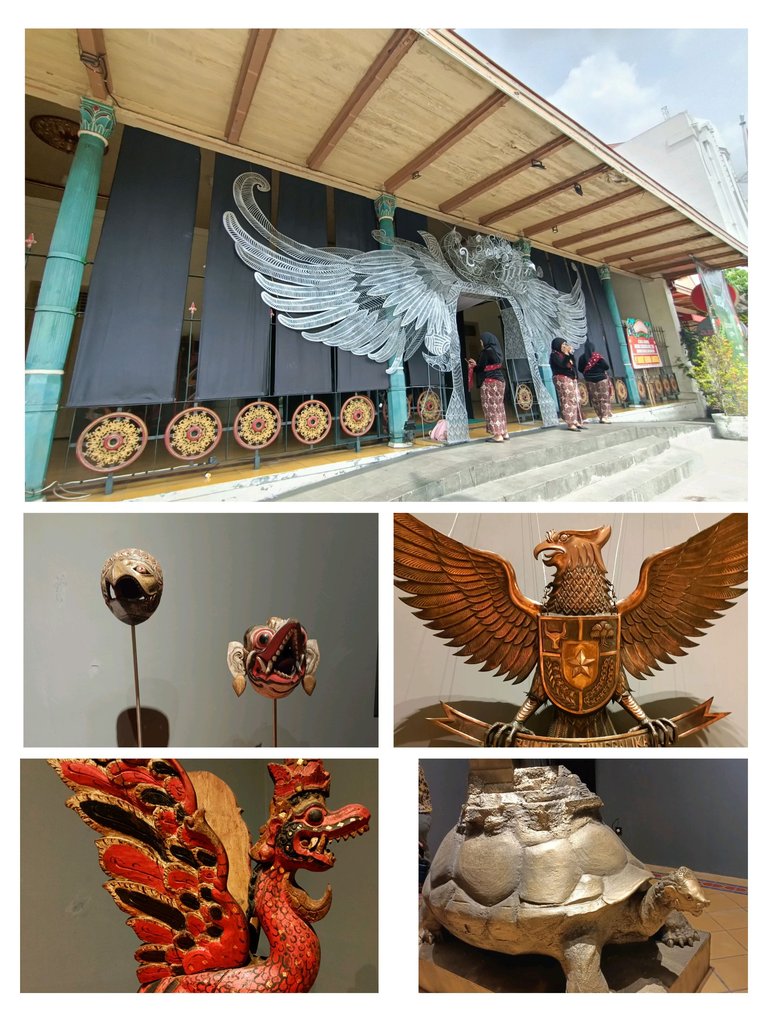
How about urban stories or myths in your country? Talking about myths means at the same time talking about the various customs and cultures that make up a place or country. Last time when I visited Yogyakarta, I also visited Sonobudoyo Museum which was holding an exhibition entitled MEET THE MYTH: From Mythology To Art and Sustainability.
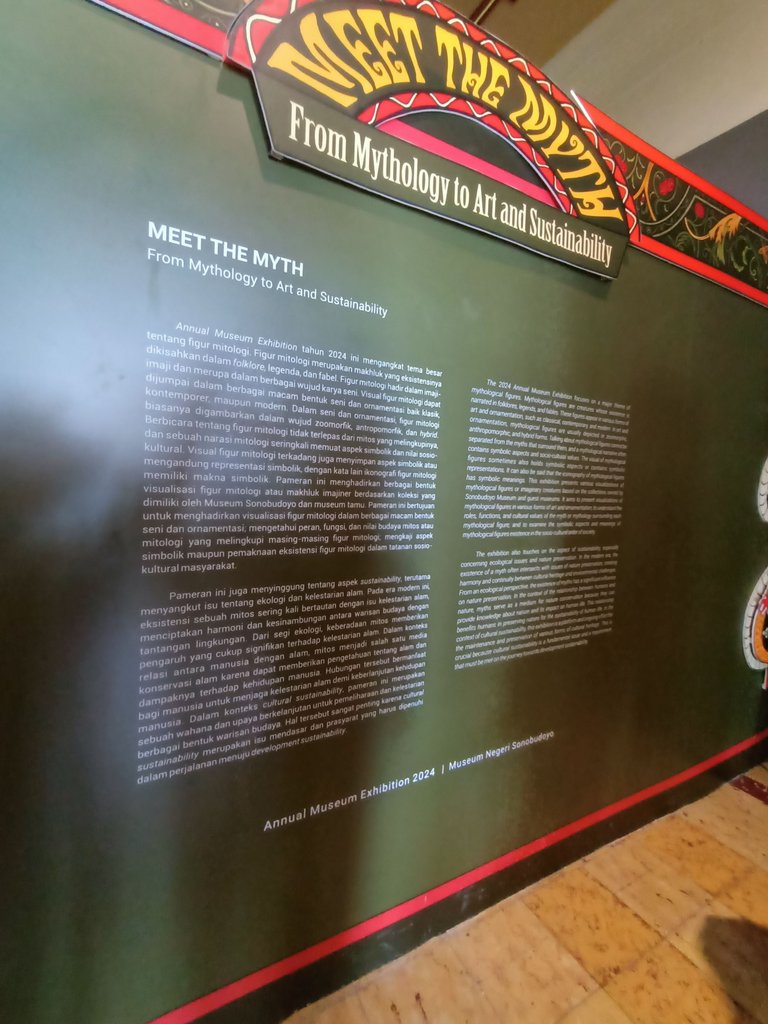
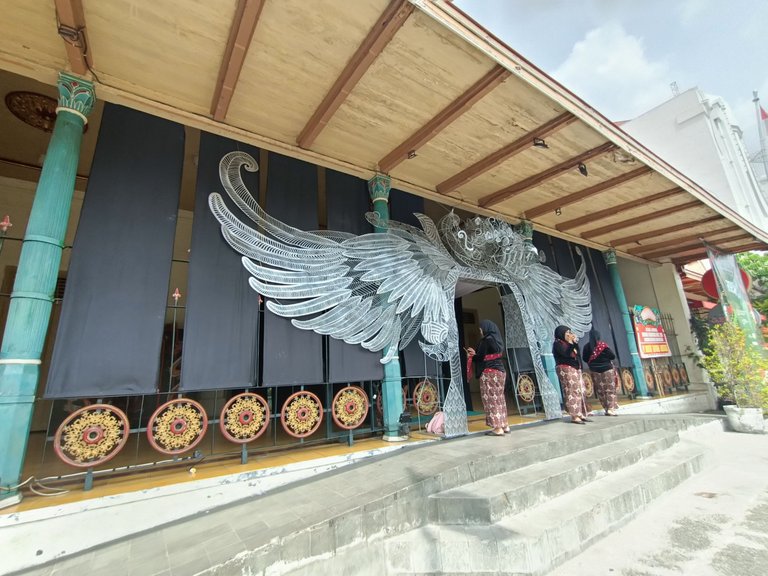
The exhibition was held in a new building attached to the Sonobudoyo Museum library. Meet The Myth is a series of the Annual Museum Exhibition in 2024 which raises a big theme about mythological figures. Indonesia itself as an archipelago is certainly not free from the name of mythological creatures that are often mentioned in folklore, legends or fables.
Here are some of the mythological creatures carried by the Sonobudoyo museum.
GARUDA
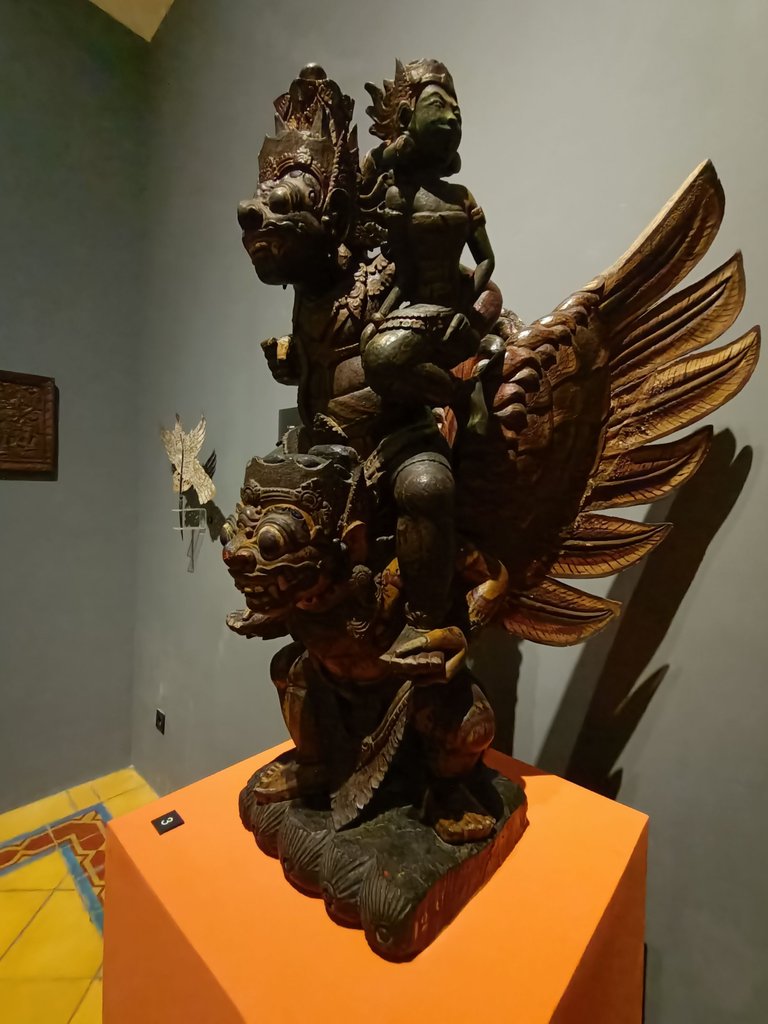
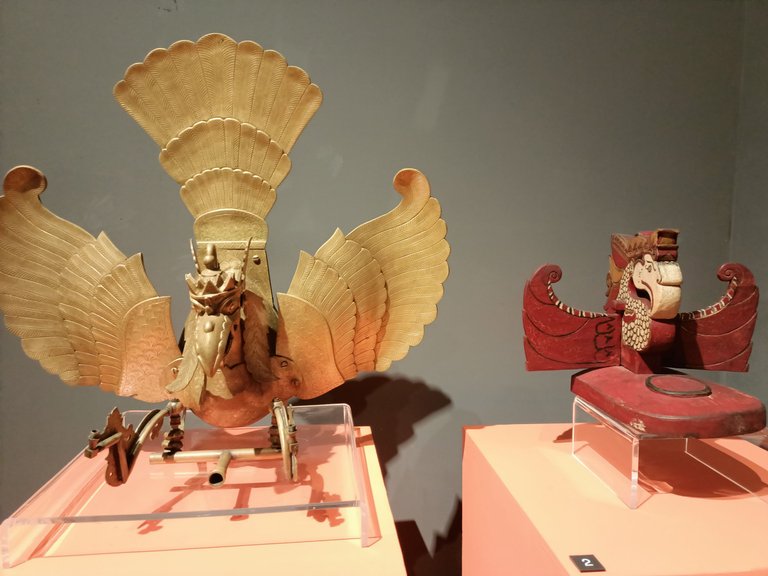
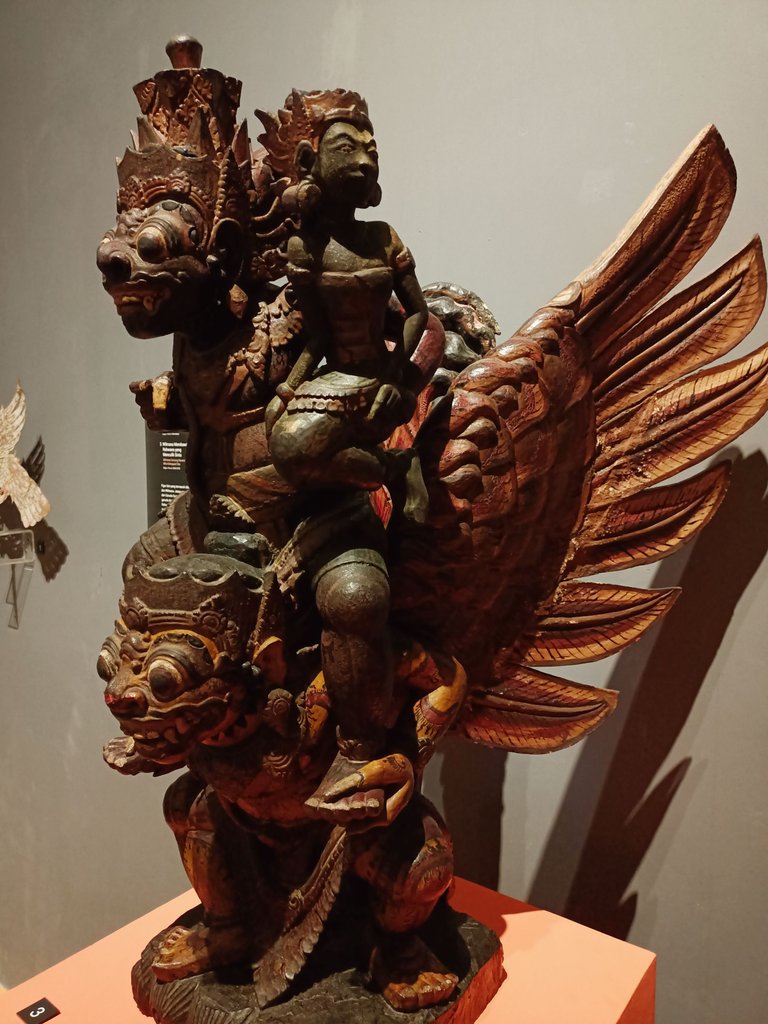
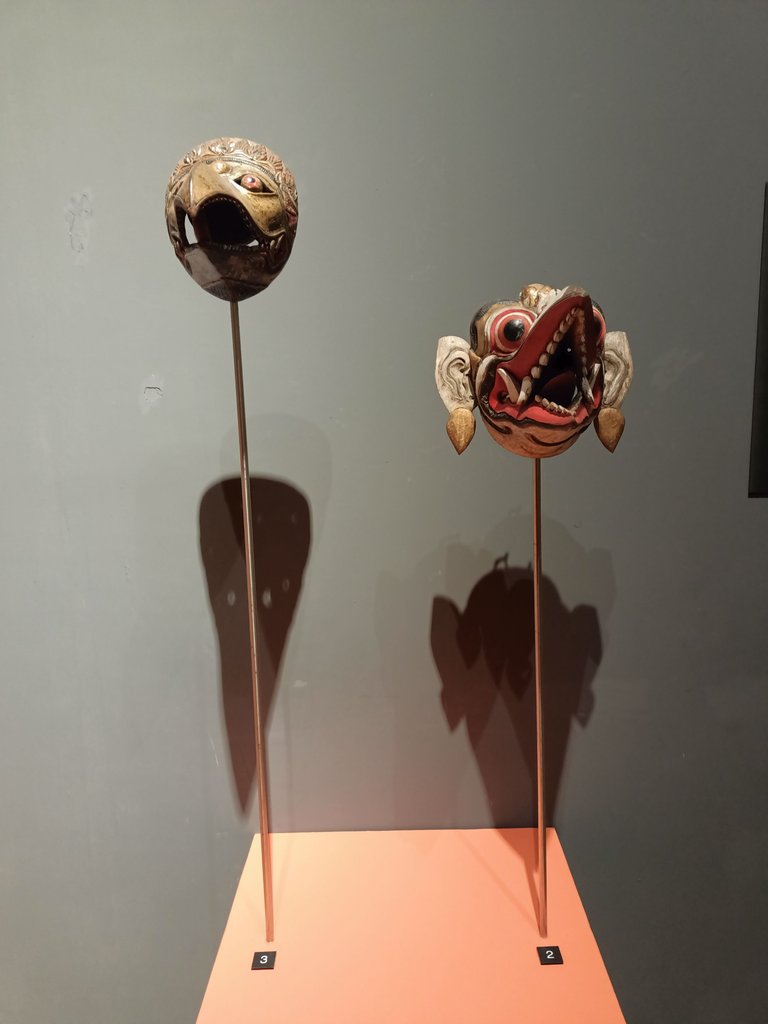
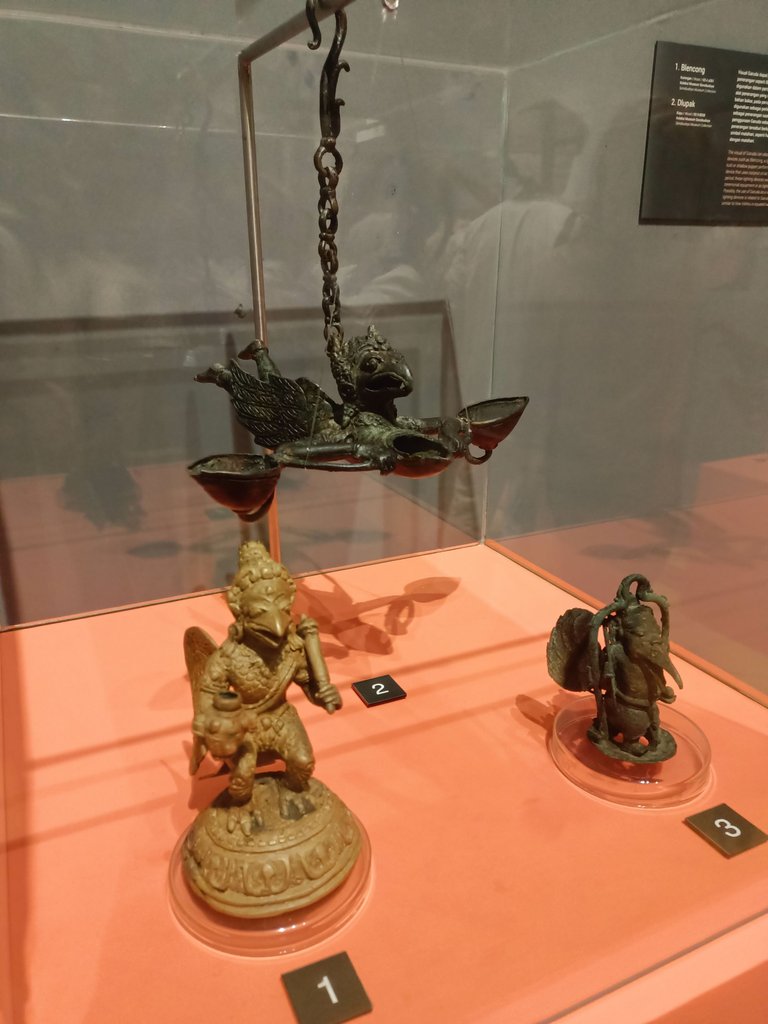
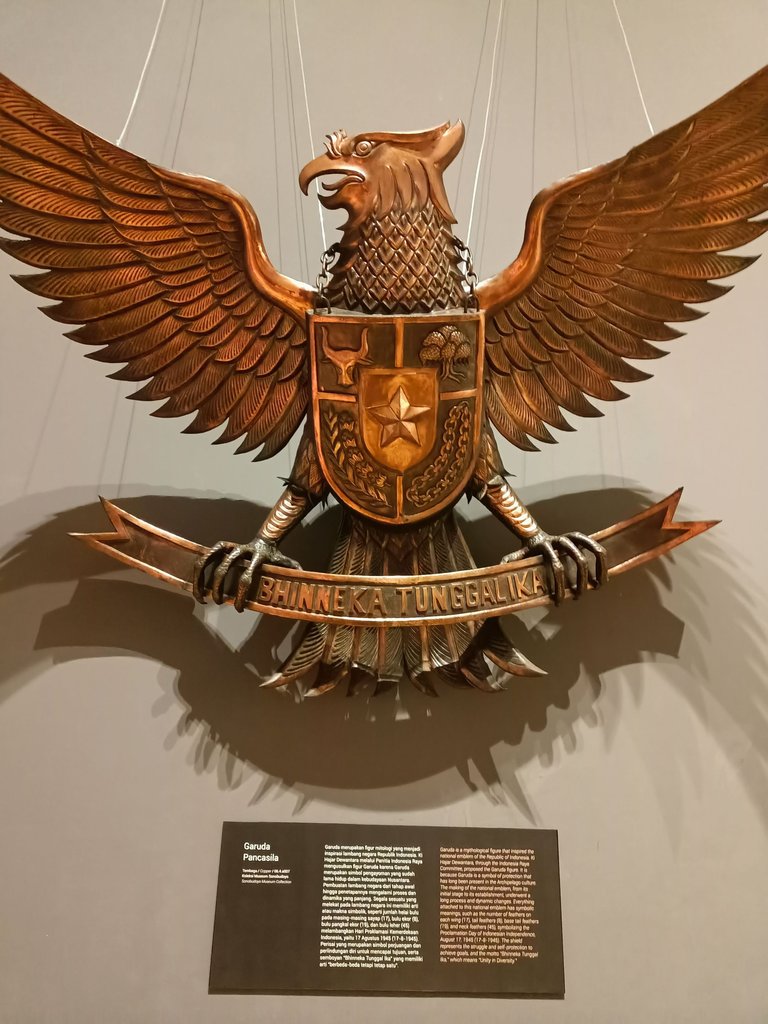
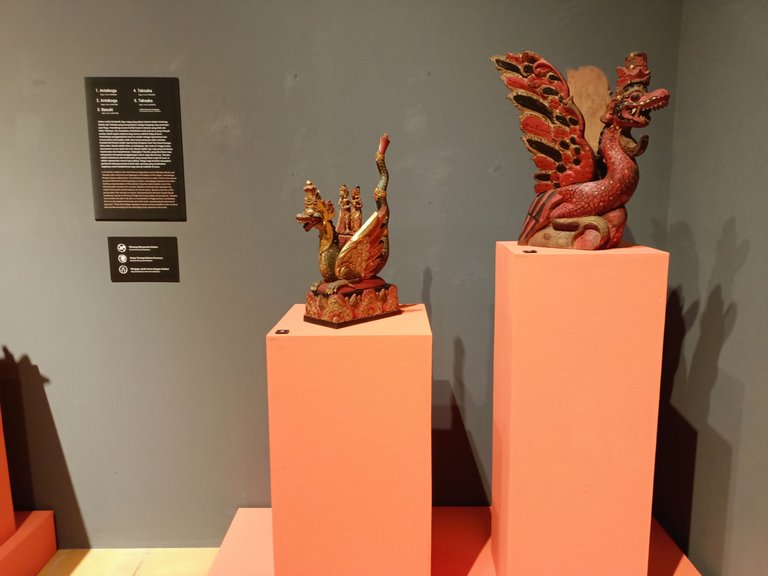
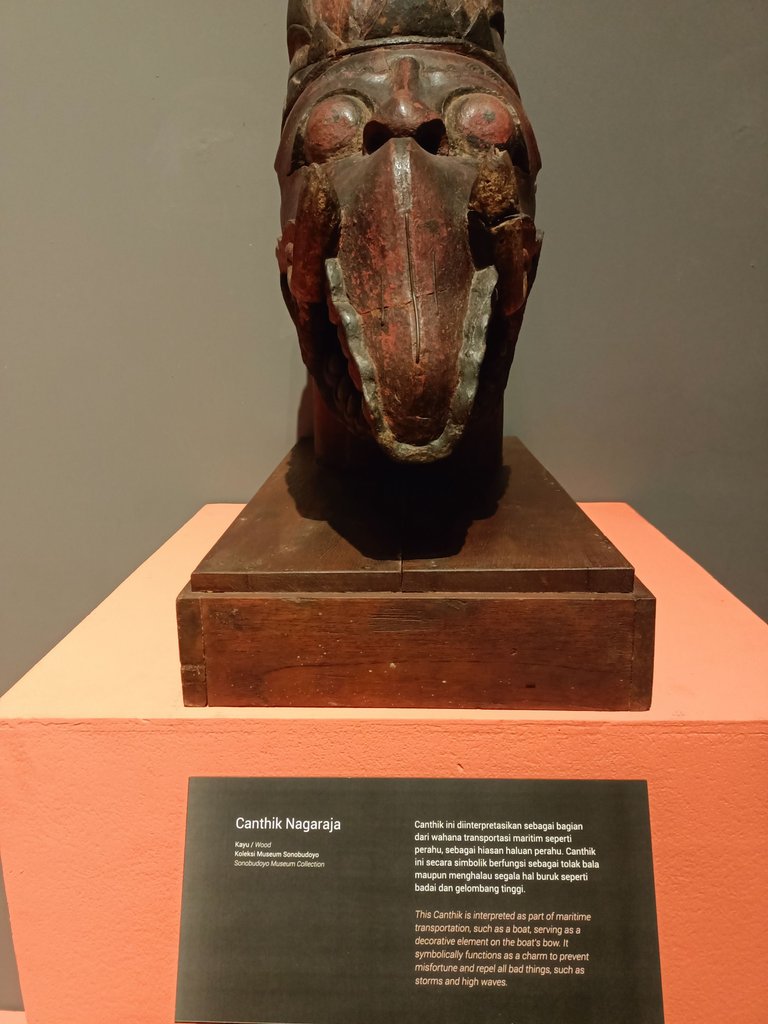
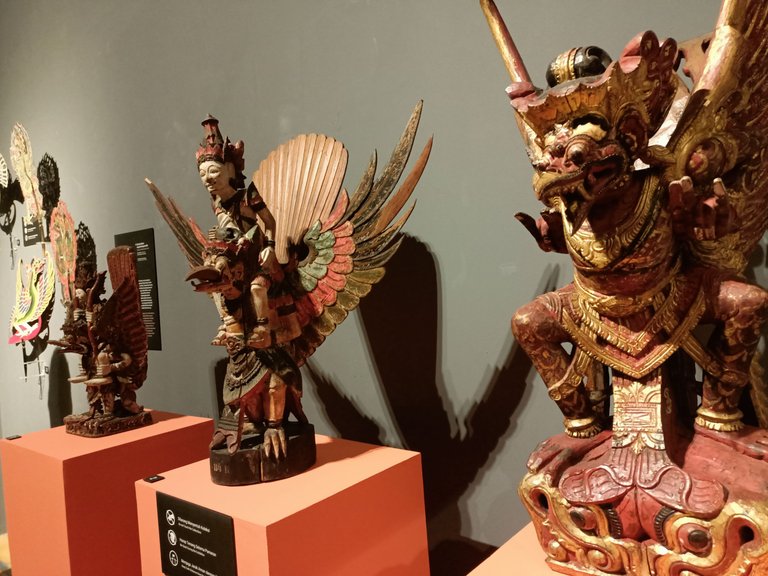
The symbol of Indonesia is the Garuda bird, which is a bird with a dashing appearance and sharp eyes. At Sonobudoyo Museum there are several sculptures in the form of wood, brass and bronze sculptures of various types of garuda. For example, Garuda statues, Garuda Dlupak, of course not to forget the figure of Garuda Pancasila which is the symbol of the country with the motto ‘BHINEKA TUNGGAL IKA’ at the bottom.
DRAGONS
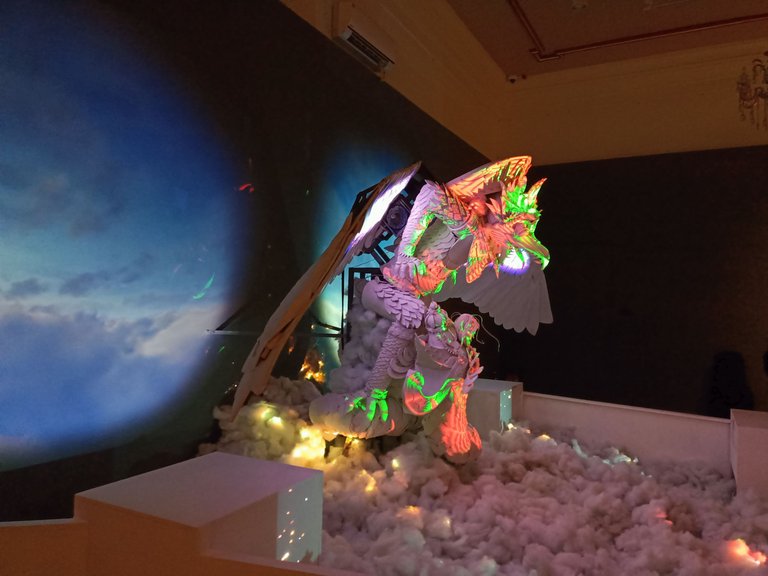
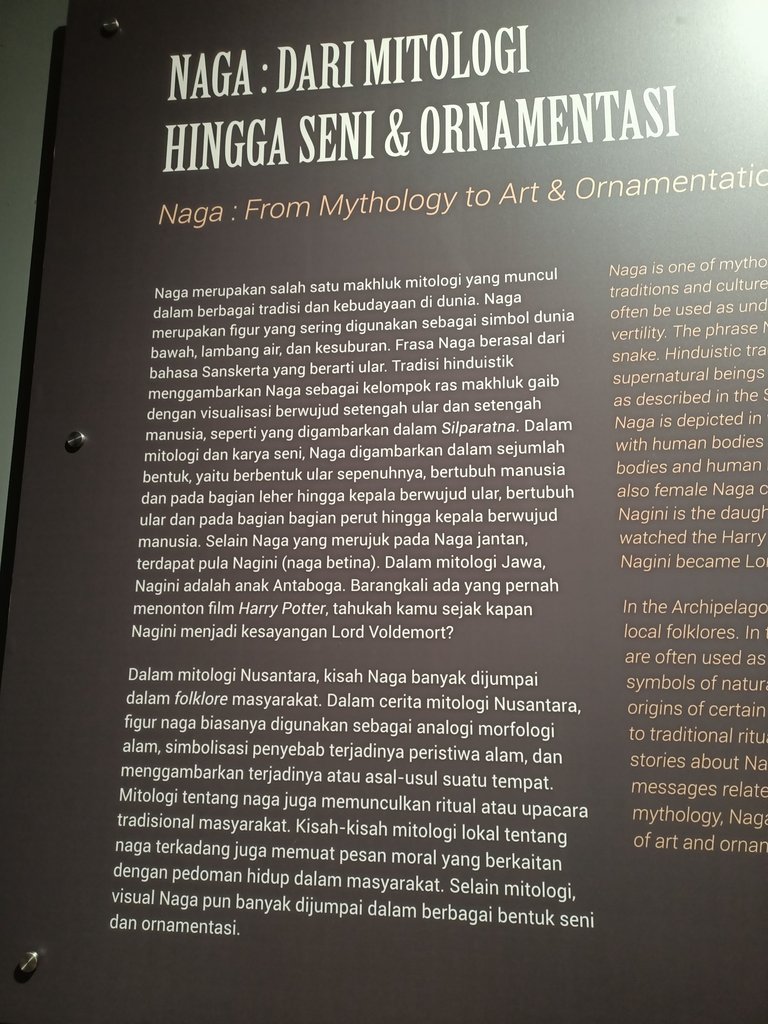
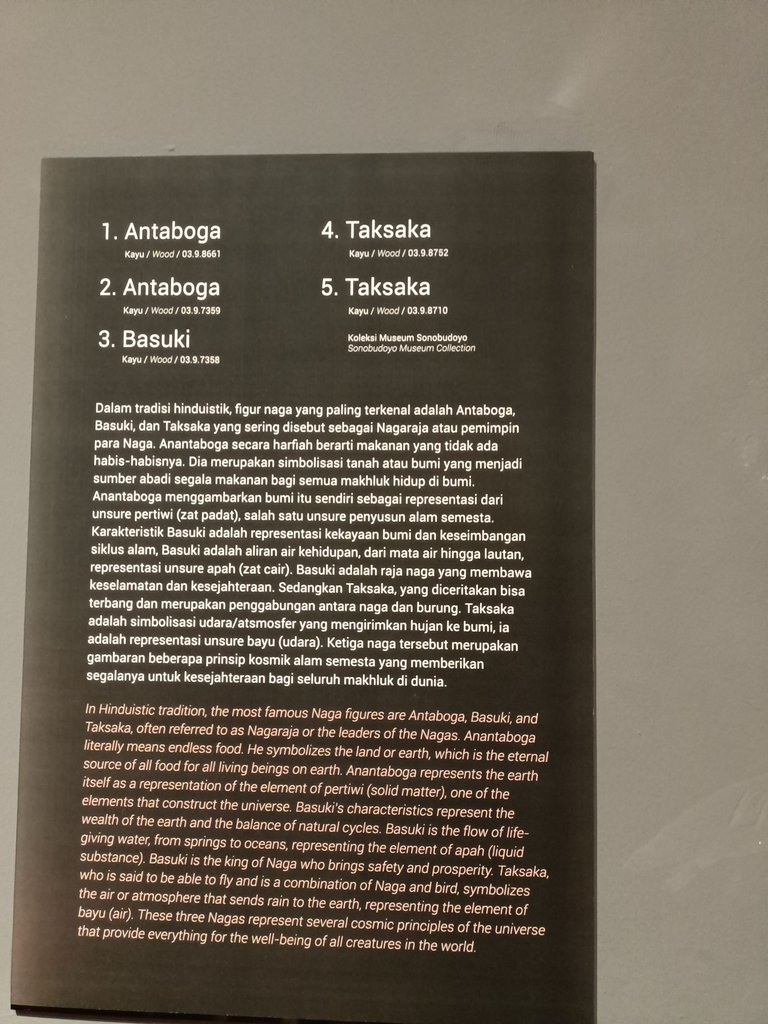
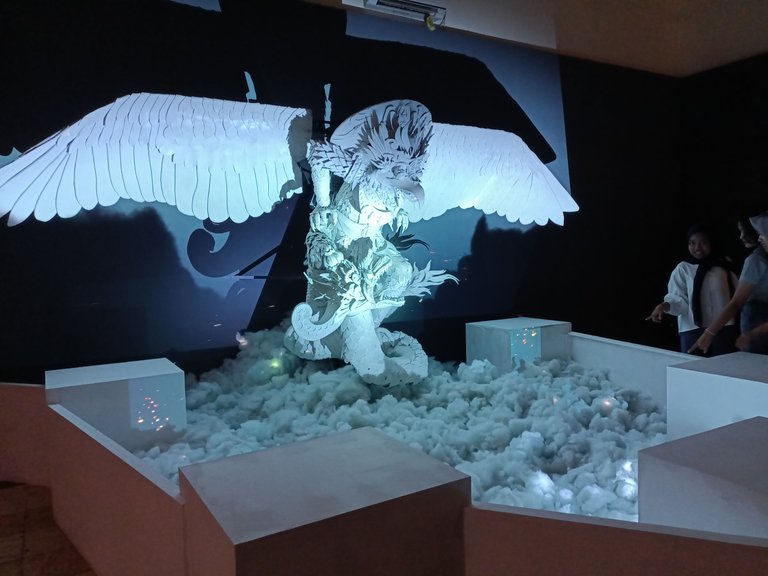
Indonesia is not the only country that has dragons as mythological creatures, but in the mythology of the archipelago, dragon figures are usually used as an analogy for natural morphology, symbolising the cause of natural events, and describing the origin or a place. The museum has Antaboga, Taksaka, and Basuki dragons.
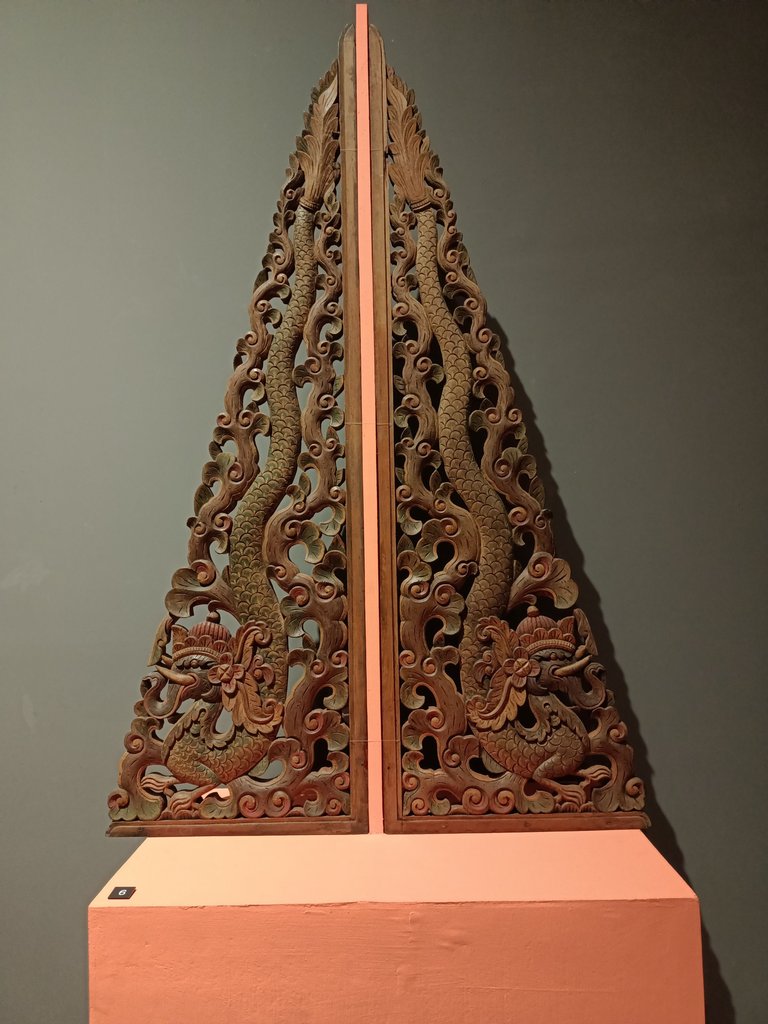
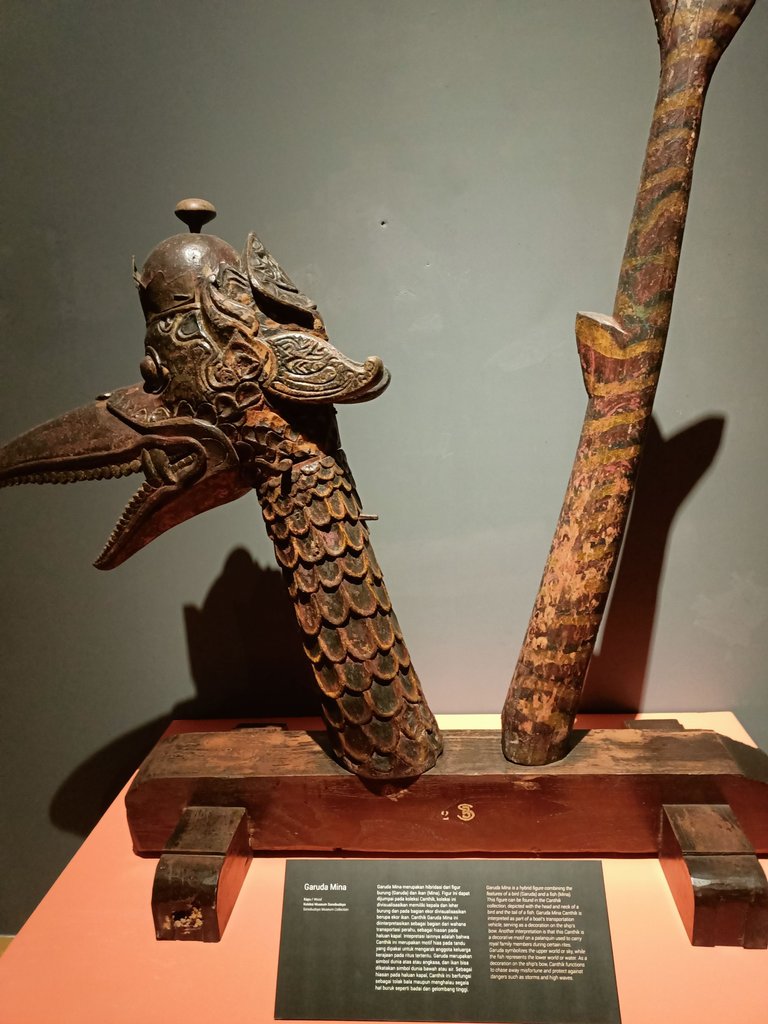
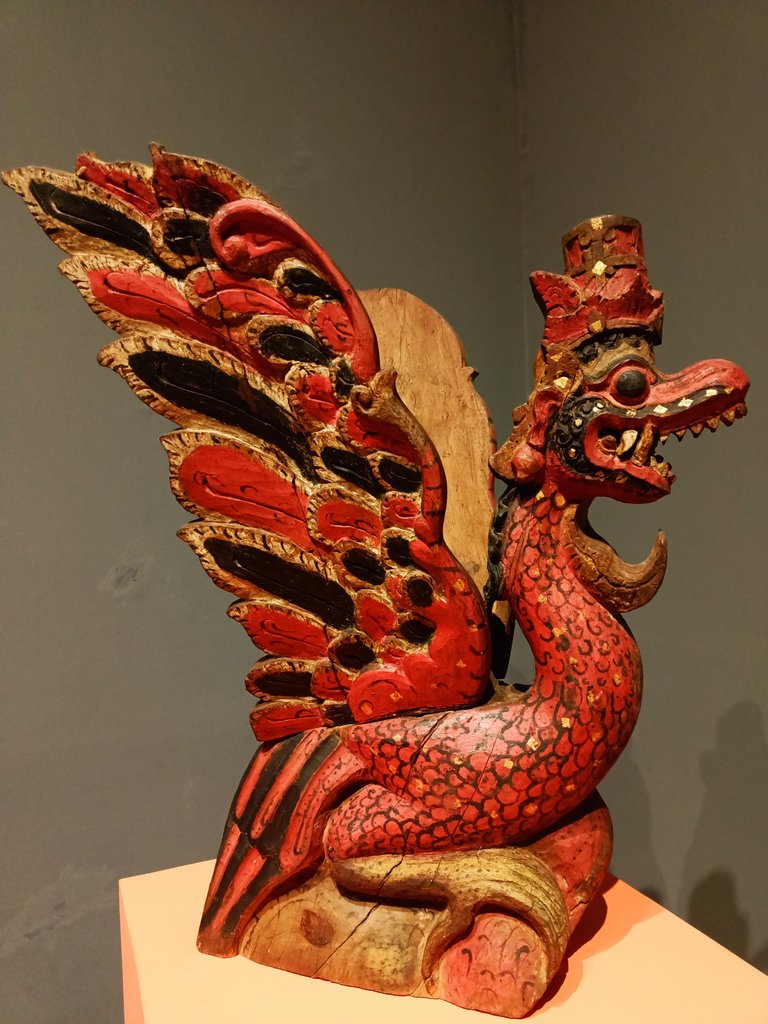
All three are in the Hinduistic tradition, where in Hinduism Antaboga is a symbol of endless food, while Taksaka is a flying dragon and a combination of dragons and birds as a symbol of the atmosphere2 that sends rain to the earth, Taksakan is a representation of the air element. While Basuki is a representation of the wealth of the earth and the balance of the natural cycle, Basuki is the flow of living water. From the spring to the ocean. Basuki is the dragon king who brings safety and prosperity.
In this museum there is also the story of GARUDEYA which is the story of garuda and dragon who struggled to escape from Winata's slavery.
ZOOMORFIC AND ANTROPMORFIC STORIES
In addition to the story of the dragon and garuda, of course there are more mythological stories that are visualised in the form of animals (zoomorphic) and some in the form of human attributes (anthropomorphic).
One of the exhibits in this museum is about the mythology of Barong and Rangda from Bali. If you've heard of the island of Bali, you might also be familiar with their urban legend of the Leak ghost. Well, kono, Rangda is the queen of the Leak. Rang is described as a woman with long, matted hair, large fangs and long nails. Her eyes widen, her tongue sticks out and her breasts dangle.
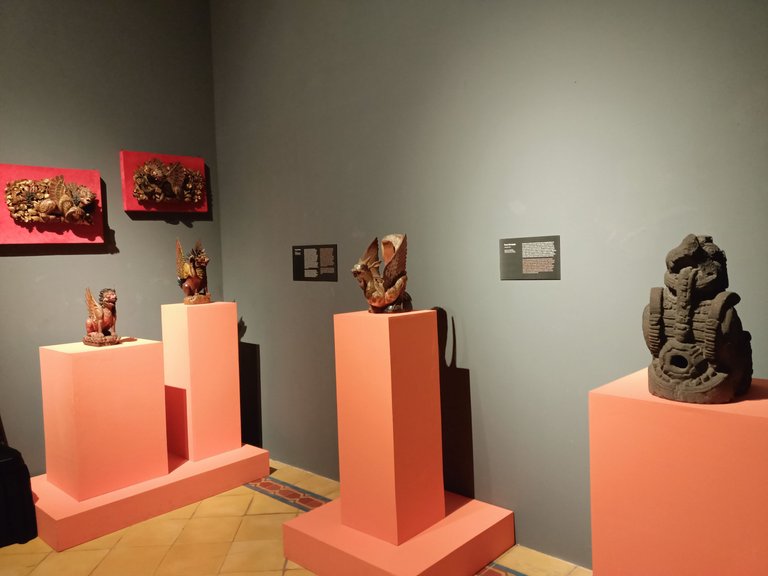
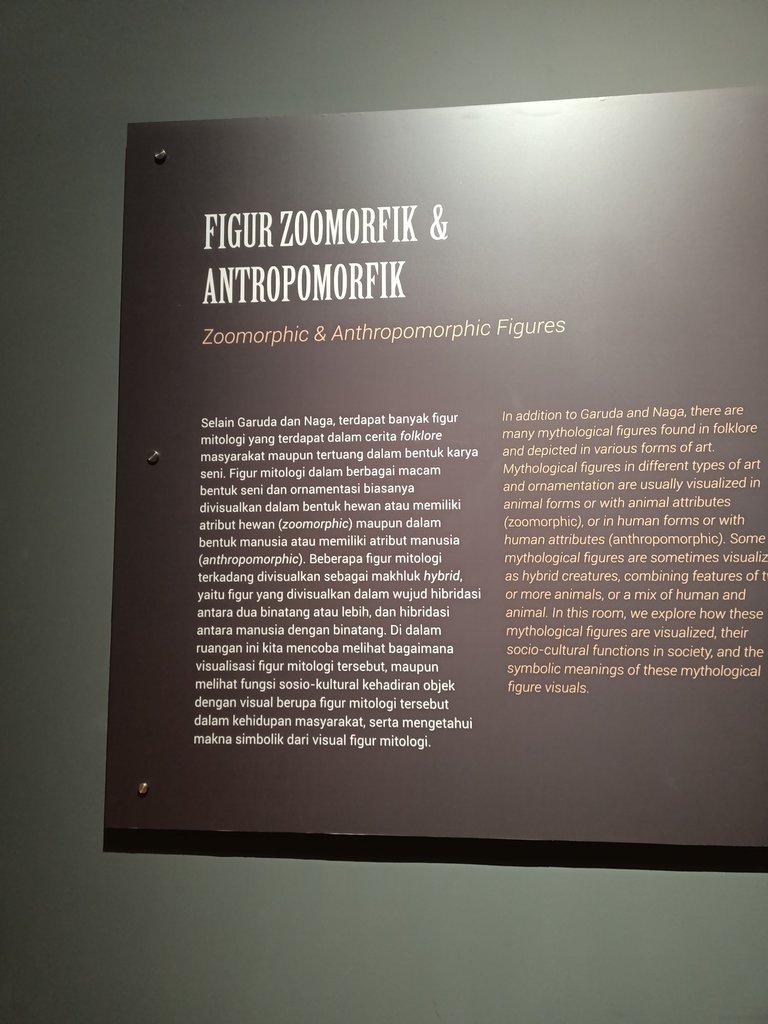
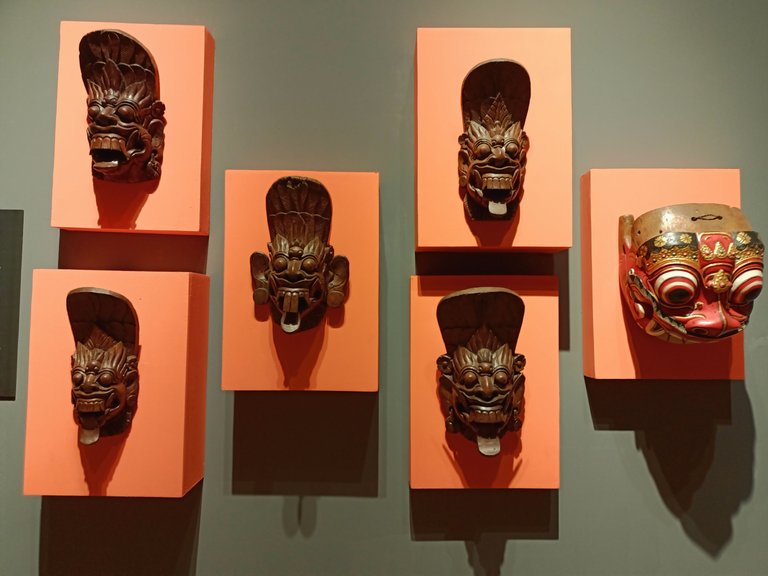
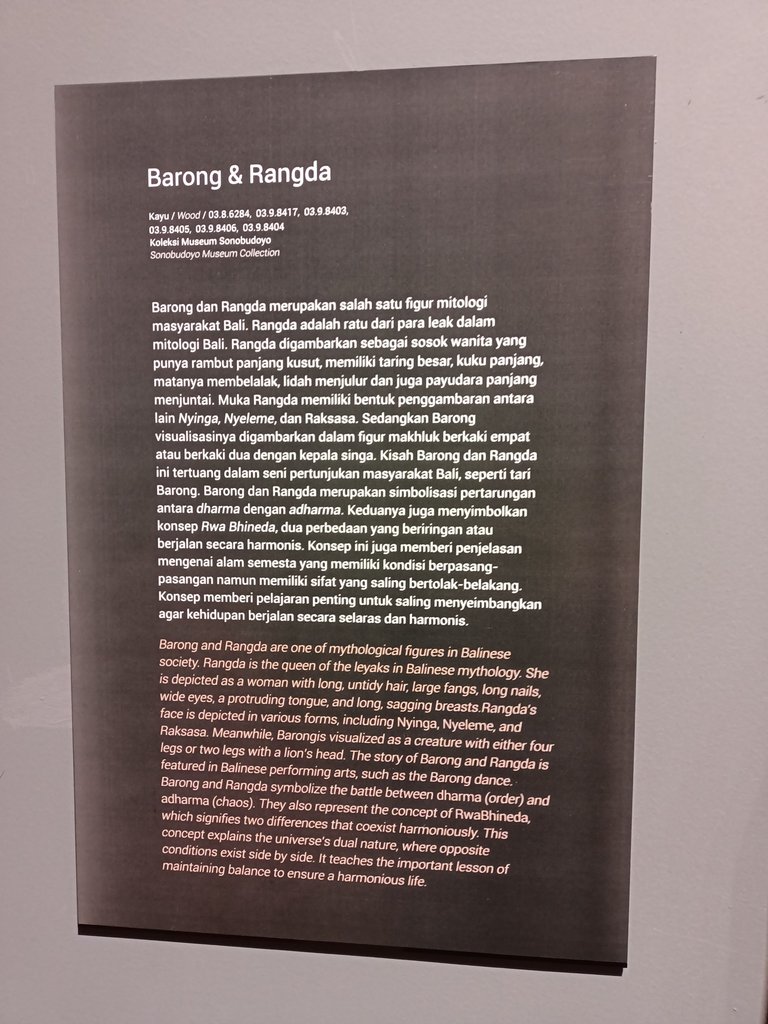
Barong is described as a four-legged or two-legged figure with a lion-like head.
MYTHOLOGICAL FIGURES: PERSONIFICATION AND ALEGORY
Aside from being in the form of animals and humans, mythology often takes the form of personification or allegory
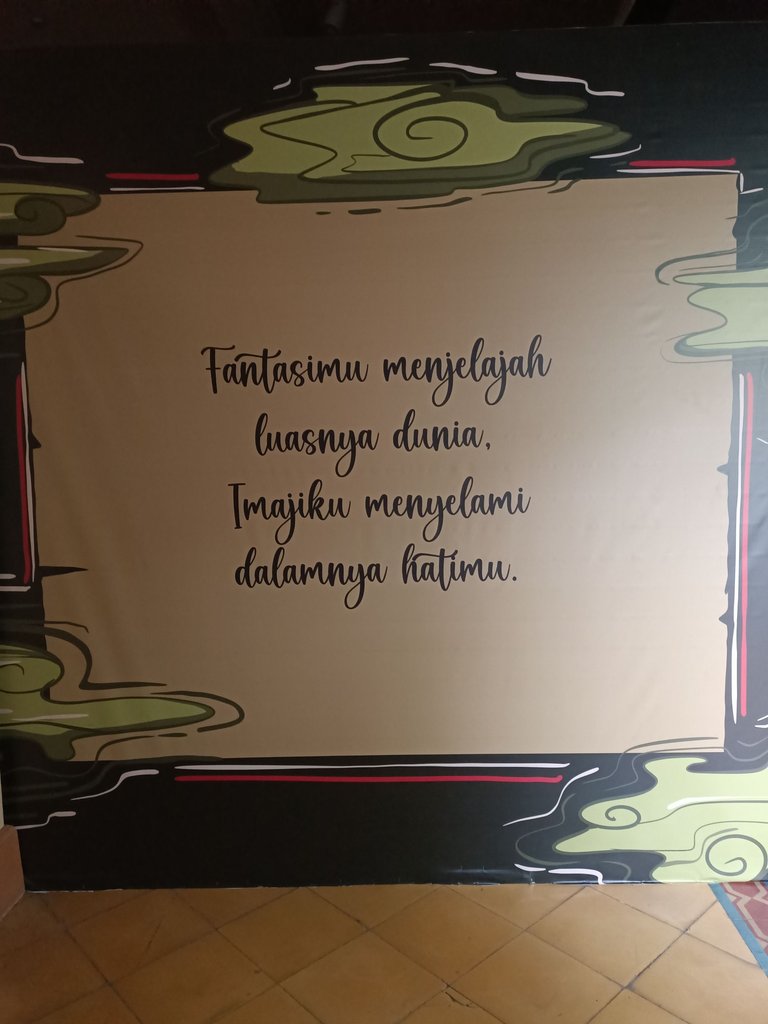
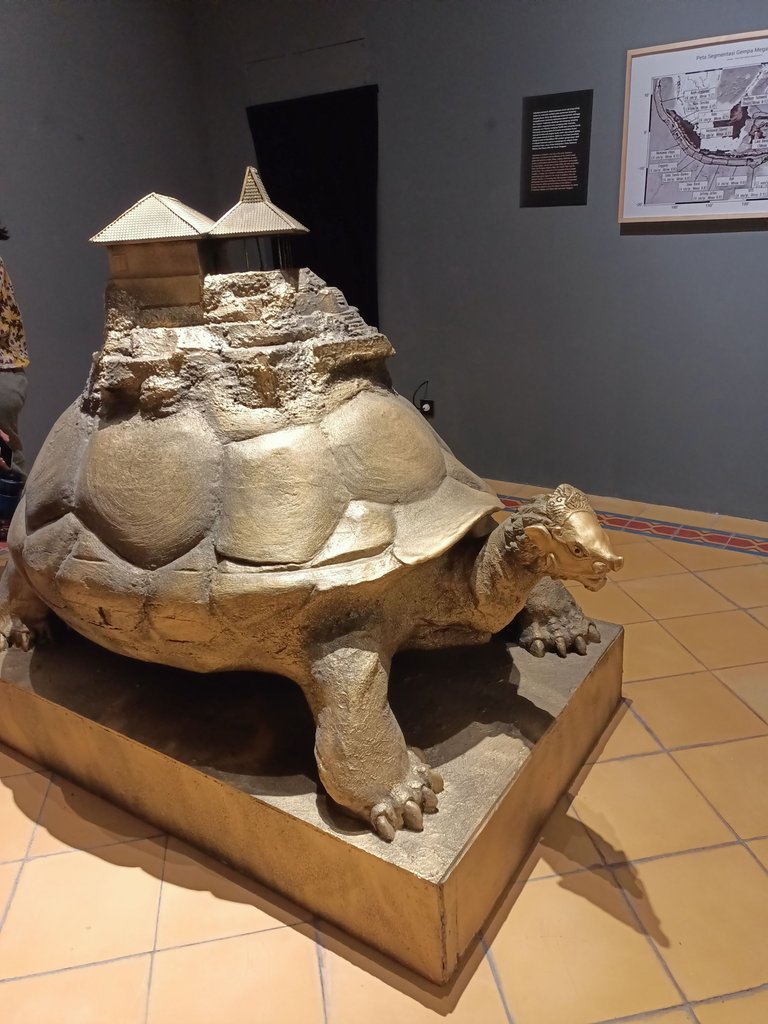
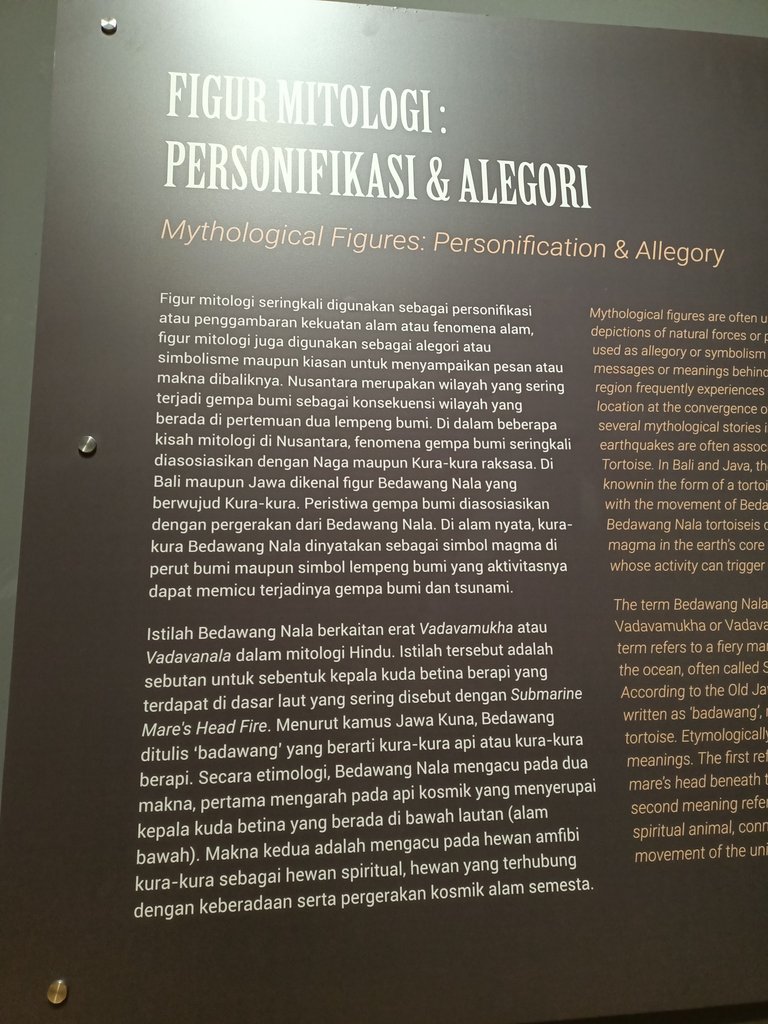
of natural forces or natural phenomena. As in the islands of Java and Bali, namely Bedawang Nala in the form of a giant turtle. earthquake events are associated with the movement of Bedawang Nala.
Thus my journey at Sonobudoyo museum and explore the mythology that grew in the archipelago. Thank you for following my journey, where will we go next time?

Hi, I am the child of the universe, I like to read books with various genres. I was born in the city of batik but can't draw batik yet. I want to be a novelist, but my works are only short poems that are included in anthology books.
please share my content if you feel my content is good for everyone to read. Thank you. Let's be friends!
You can check out this post and your own profile on the map. Be part of the Worldmappin Community and join our Discord Channel to get in touch with other travelers, ask questions or just be updated on our latest features.
It's a very beautiful statue
Agreed. Thank you
Amazing spot! ❤️